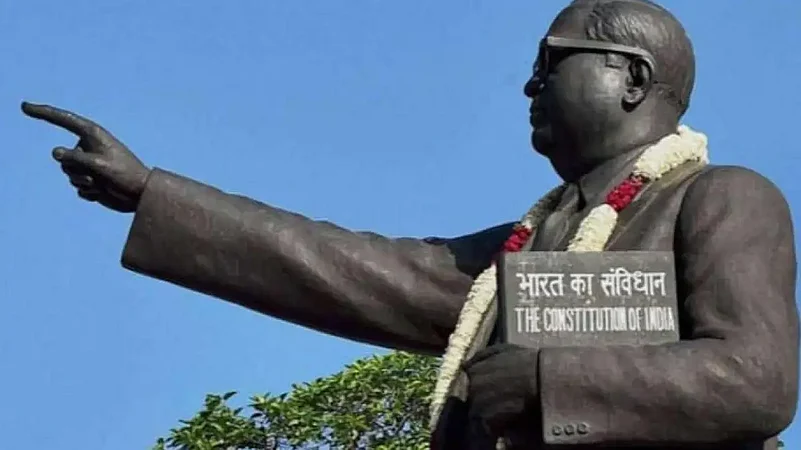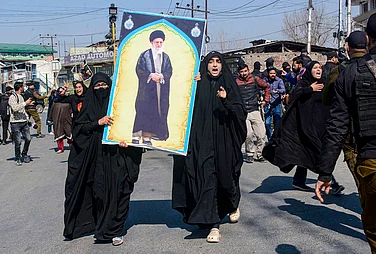One of the many democratising ideas underlying India’s post-colonial trajectory has been the strong emphasis its Constitution lays on citizens’ rights. On November 4, 1948, introducing the Draft Constitution in the Constituent Assembly, B R Ambedkar, the chairman of the Drafting Committee, declaimed: “I am glad that the draft Constitution has adopted the individual as its unit”. Responding to the criticism levelled by some of the members for not giving importance to village panchayats, Ambedkar stated: “What is the village but a sink of localism, a den of ignorance, narrow-mindedness and communalism?”
Ambedkar’s words singularly highlight the intention of the Constitution framers to move away from the colonial past and the web of social hierarchies the Indian society was engulfed in during British rule. Apart from being conceived as a check and balance on the state power, fundamental rights were essentially intended as guarantees against untouchability, forced labour, discriminatory access to public spaces and so on.
Today, as political leaders holding positions of constitutional responsibility, including no less than the Prime Minister himself, publicly dismiss rights and talk about the performance of duties, Ambedkar would turn in his grave.
The classic example of a sketchy view of rights is the Prime Minister’s speech in January 2022, wherein he said: “In the last 75 years, we only kept talking about rights, fighting for rights and wasting time. The talk of rights, to some extent, for some time, maybe right in a particular circumstance, but forgetting one’s duties completely has played a huge role in keeping India weak.”
Interesting to note here is that the conflation of rights and duties is not something new. The last few years have only seen a surge in this conflation with members of the judiciary chiming in. Former Chief Justice of India S A Bobde echoed the conflation at a judicial conference in 2020 to invite attention to the Constitution’s Fundamental Duties chapter. Citing Gandhi’s Hind Swaraj, he observed that ‘real rights are a result of the performance of duty’. This false equivalence of duties and rights by a Supreme Court judge is arguably the lowest point in political recognition in post-colonial India.
The conflation prominently featured in the political discourses during the height of the Emergency of 1975 which culminated in the incorporation of a chapter on ‘Fundamental Duties (Part IV A)’ in the Constitution through the 42nd constitutional amendment of 1976. Some of the duties require the citizens to abide by the Constitution, respect the national flag and the national anthem, and uphold and protect the sovereignty, unity and integrity of India. Even though, duties have always been an integral part of all legal systems across the world, including India’s. There are countless laws which impose duties, for instance, criminal law, tort law, contract law etc. Needless to say, the amendment was designed to hamstring the Courts and establish the supremacy of the Government. This was the worst time for individual rights in India wherein the top Constitutional Court sided with the political executive for the crackdown on fundamental rights.
But why have the political discourses consistently moved away from explicitly emphasising on rights? Why are the tensions between rights and duties increasingly growing in the world’s largest democracy? Is the enjoyment of rights only dependent on the performance of duties? I identify three salient reasons why the conflation of rights and duties is bad in law and wrecks the basic structure of the Constitution.
One, it is an established principle of the legal canon that rights and duties are always correlative; which means the existence of a right in one person implies a correlative duty in another person. If X has a right to equality under the Constitution, the State has a duty not to discriminate against her. Nearly forty years back, British philosopher Onora O’Neill had to argue this:
“Although serious writing on human rights acknowledges that any right must entail correlative obligations, we find no Universal Declaration of Human Duties, and no international Human Obligations Movements”. Far from echoing O’Neill’s demand for a charter of obligations/duties to protect rights, it is sad to see India’s ministers and judges campaigning for making rights contingent on the right-holder's performance of some abstract duty.
Any student of law would know that the logic of correlativity of rights is different from the rhetoric of correlativity. The conflation of duties and rights by power-holders is not merely rhetoric but also patently wrong. It is essentially a contradiction in terms; rights are either inherent or accrue by way of a statute or some prior event like entering into a contract. The conflation, therefore, does not even remotely fit in the constitutional guarantee of fundamental rights which is assumed to be its context.
Two, the Constitution places an embargo on the state not to abridge fundamental rights, therefore vesting the Courts with the power to review any restriction on the rights. The Courts have time and again struck down legislative and executive actions violative of fundamental rights. A right-holder can approach a High Court or the Supreme Court for a violation of a fundamental right, which is why Ambedkar had to observe that ‘the right to constitutional remedies is the heart and soul of the Constitution’. This aside, the Constitution assumes that the fundamental rights are not waivable which has been echoed by the Supreme Court in several cases for instance in Basheshar Nath v CIT AIR 1959 SC 149.
Three, a plain reading of the Constituent Assembly debates highlights the rights-centric nature of the Constitution. Also, even as fundamental duties have found a place in the Constitution, they are not justiciable. Interestingly, the Swaran Singh Committee which recommended the inclusion of fundamental duties in the Constitution had also recommended punitive action in the event of non-compliance of duties. However, in the end, the amendment was introduced after the punitive part was removed.
The bottom line is that anything even remotely close to equating duties with rights will have grave consequences for the rights’ protection regime under the Constitution. There is nothing wrong per se with the idea of having a charter of duties in the Constitution. It is their false equivalence with the rights and at times preference over them, by the powers that be which is problematic and diminishes an individual.
It would be a travesty to make enjoyment of rights contingent on the performance of duties using the rhetoric of duties first. As Samuel Moyn argues in his 2016 Boston Review article: “It is undeniable that the rhetoric of duties has often been deployed euphemistically by those whose true purpose is a return to tradition won by limiting the rights of others”.
It’s ironic that seventy-five years after the founding moment, we are still asking for a return to the logic of correlativity of rights and reclamation of the language of rights in both legal and political discourses. As Moyn writes in the same article, “despots had always droned on about the duties of subjects to the state”.
Burhan Majid is an Assistant Professor of Law at the School of Law, Jamia Hamdard, New Delhi and a doctoral fellow at NALSAR University of Law, Hyderabad. He tweets @burhanmajid.
(Views expressed are personal)




















